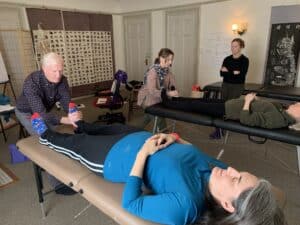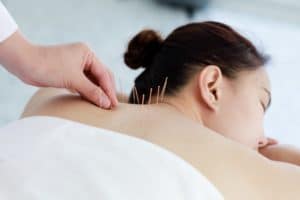The thyroid is part of the endocrine system, the network of glands that regulate the body’s hormones. Hashimoto’s disease (also called Hashimoto’s thyroiditis) is a common autoimmune disorder, in which the body’s immune system attacks its own thyroid tissues. The symptoms are vague – a sluggish metabolism, weight gain, fatigue, depression, heavy periods, joint and muscle pain – which means it is often overlooked. Nonetheless, thyroid disorders can lead to significant health problems and other body imbalances. While Western medicine treats Hashimoto’s thyroiditis with synthetic hormone medications, acupuncture can offer a natural therapeutic support and help to restore balance to the body.
An Overview of Hashimoto’s Thyroiditis
Hashimoto’s thyroiditis is an autoimmune disease in which your immune system creates antibodies that attack the thyroid gland. At first, Hashimoto’s may produce symptoms of hyperthyroidism (anxiety, irritability, hyperactivity, hair loss), but as the thyroid tissue is destroyed it leads to hypothyroidism. With less thyroid hormone being generated, a person’s metabolism may slow down and cause weight gain, sluggishness, fatigue, digestive problems, and an overall feeling of malaise. Hashimoto’s thyroiditis is more common in women, and it can affect the menstrual cycle, fertility, and reproductive health.
While researchers are not certain what causes Hashimoto’s disease, it appears that those who have a family history of the disease or women who have recently given birth may be more prone to developing Hashimoto’s. When someone has one autoimmune disease, they often have other autoimmune conditions. Some of the possible triggers in people who are genetically susceptible include environmental toxins, nutrient deficiencies, life stress, and viral and bacterial infections.
Diagnosis and Treatment of Hashimoto’s
Definitive diagnosis of thyroid disorders relies on laboratory testing. The standard screening test for TSH (thyroid stimulating hormone) levels may not catch Hashimoto’s until it is at an advanced stage. If you suspect Hashimoto’s it’s important to be tested for thyroid auto-antibodies.
If you are diagnosed with Hashimoto’s thyroiditis, the standard medical treatment is a daily dose of synthetic hormone (levothyroxine), which is intended to augment the level of hormone in your body. Western medicine regards Hashimoto’s as a lifelong, irreversible condition requiring continued dependence on medication. Some experts dispute this, and have found evidence that the thyroid can regenerate if disease progression is stopped early and the root cause is treated.
Thyroid hormones are “Goldilocks” medications. This means that they have a very narrow therapeutic range, and the dosage has to be “just right.” If it isn’t, there may be side-effects in the form of either hypo- or hyper-thyroid symptoms. Since hormone levels in Hashimoto’s can fluctuate, it can be especially difficult to find a dosage that works. In some cases, the medication may bring hormone levels to a “normal” range, but the person may still feel sluggish and fatigued.
While thyroid medication may be necessary to treat Hashimoto’s, treating the root cause with better nutrition, lifestyle interventions and alternative treatments like acupuncture can help stabilize and support conventional treatment.
Acupuncture Treatment for Hashimoto’s Disease
Although more comprehensive clinical studies are needed, some studies show promising evidence of acupuncture’s ability to relieve many symptoms of Hashimoto’s thyroiditis. Acupuncture can also help manage many of the related health problems, such as menstrual issues, fatigue, weight gain, insomnia and depression. Through a combination of acupuncture treatments and nutritional therapy, the thyroid may be supported and stabilized in functioning. If you have been diagnosed with Hashimoto’s, or if you simply feel more sluggish than usual, scheduling an initial consultation with an acupuncturist is a great way to learn more about natural healing programs.
Reference and Recommended Reading
Wentz, Isabella, Pharm.D., FASCP Hashimoto’s Thyroiditis: Lifestyle Interventions for Finding and Treating the Root Cause. 2013.
Inner Works Acupuncture offers Five Element Acupuncture and nutritional therapy to clients throughout the Portland area. Call (503) 227-2127 today to make an appointment.




